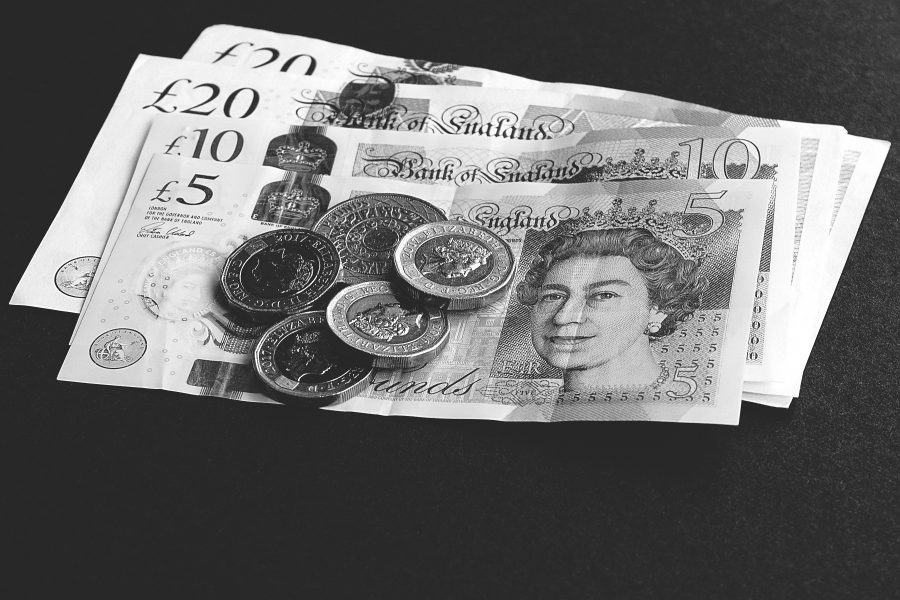I had recommended buying the British pound at 1.2700 against the US dollar in successive columns in the past two weeks. Sterling is at 1.3200 as I write, the trade is already hugely profitable. Cable has now closed above its crucial 200 day moving average in a clear trend reversal. As markets dismiss the risk of a no deal Brexit, I believe the pound will rise higher and so will not take profits now. Berlin and Paris sources also hint at extension of the Brexit deadline. The Bank of England’s Andy Haldane even hinted at “limited and gradual” rate rises, magic to this sterling bull, albeit still nervous, in Dubai!
The Turkish lira was no brainer buy last August when it tanked 25% in a single week to 7 against the US dollar. However, I would not touch the Turkish lira with a bargepole at 5.26 as the inflation rate is a draconian 20% and Turkish banks/corporates saddled with $300 billion in foreign loans. President Erdogan has branded interest rates as the “mother and father of evil” and not hesitated in the past to pressure the Ankara central bank to cut interest rates. Erdogan even accused a former central bank governor of “treason”. Turkish exports will also be hit by a European recession since 50% of exports are destined for the EU single market. Geopolitical risk is also rising as Ankara faces a new PKK insurgency in Anatolia and American opposition to a planned military intervention against the Kurdish enclave of Rojava in Syria.
Trump has threatened Ankara with its “economic devastation” if its armies attack the US allied Kurdish YPG militia in Syria, who played a critical role in the destruction of Daesh’s renegade “caliphate” in Raqqa. After a failed coup, a massive crackdown on suspected opponents of the regime, a wave of terrorist attacks in Turkish cities, a currency collapse, diplomatic tensions with Washington, Moscow and Berlin and a constitutional amendment to give Erdogan autocratic power, Turkey now faces a systemic debt crisis.
Turkey is afflicted by the biggest current account deficit in Europe financed by daisy chains of offshore hot money. Erdogan, who believes high interest rates lead to inflation, has just been granted emergency economic powers by a AKP controlled Parliament. Turkey faces its worst recession in a decade in 2019. I expect the Turkish lira to depreciate to 6.5 against the US dollar by end 2019.
I am delighted by the progress Egypt has made since its IMF mandated pound devaluation in November 2016. Hard currency reserves have more than doubled from $16 billion before the devaluation to almost $45 billion now. This enables the Egyptian central bank to maintain a comfortable de facto peg at 17.95 against the US dollar. Inflation, a catastrophic 30% two years ago has fallen to 11% in December. While Egypt faces terrorist threats in North Sinai and the Nile Delta, President Sisi’s military regime has the power and leverage to undertake structural economic reforms (e.g. abolition of fuel subsidies) that were even beyond the capabilities of Presidents Sadat and Mubarak. Egypt will also benefit from the snapback in Brent crude to $61 a barrel as Suez Canal tolls, LNG exports, remittances from the Misri diaspora in the Gulf. and petrodollar aid from Riyadh and Abu Dhabi are all correlated to the price of black gold. The risk/reward calculus suggests a 25% return on unhedged, leveraged one-year Egyptian Treasury bills.
I had recommended a strategic buy on the South African Rand at 14.50 soon after my return from a business trip to the Rainbow Nation. However, now that the Rand has risen to 13.85, I am still bullish on one of the world’s most high beta emerging market currencies as the smoke signals out of the US-Chinese trade negotiations and the Federal Reserve’s monetary enclaves still argue for 13.40 target.
The one year forward rate agreements (FRA’s) show money markets expect a 25 basis point hike in the next year while inflation expectations have softened to March 2018 lows. Despite the land reform debates and Julius Malema’s rhetoric, President Cyril Ramaphosa will win the May 2019 election, hopefully with a parliamentary majority comfortable enough to reform looted, mismanaged state-owned enterprises.
Of course, the biggest risk to the South African Rand is a potential Moody’s downgrade of local currency debt to sovereign junk, which would trigger an exodus of global investors from the Johannesburg capital markets. However, pro-reform policies by President Ramaphosa, credible monetary policy management by the Reserve Bank of South Africa, lower oil prices and a stronger Rand could well avert a Moody’s downgrade. While the easy money in the Rand has now been made, I would reenter the trade at any weakness to 13.90 as the macro stars are aligned for this high yield EM carry currency!







